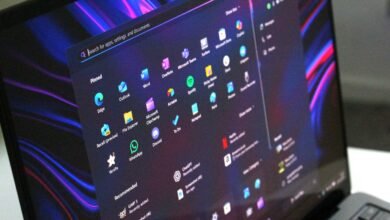Microsoft Fixes Year-Long Windows 11 Update Bug Blocking Intel PCs

▼ Summary
– A Windows 11 bug preventing 24H2 updates on PCs with Intel 11th-gen processors has been fixed after a year.
– The issue was caused by an incompatibility with specific versions of the Intel Smart Sound Technology (SST) audio driver.
– Microsoft blocked affected devices with a compatibility hold, causing crashes like the Blue Screen of Death.
– Users must install the Intel SST driver version ending in 5714 via Windows Update to resolve the issue and upgrade.
– This same driver problem previously blocked upgrades to Windows 11 22H2 and 21H2, affecting a significant portion of users.
Microsoft has finally resolved a persistent Windows 11 compatibility issue that for an entire year prevented computers equipped with Intel’s 11th-generation processors from installing the 24H2 feature update. This long-standing glitch specifically involved certain versions of the Intel Smart Sound Technology (SST) audio driver, causing system instability that led to crashes and the infamous Blue Screen of Death, which Microsoft now displays as a black screen.
To safeguard user systems, Microsoft had placed a compatibility hold on affected devices, effectively blocking the upgrade path to Windows 11 version 24H2. The core of the problem lay with the Intel SST driver, and a resolution was dependent on Intel providing an updated, compatible version. After a lengthy wait, a fix was officially confirmed on September 26, 2025.
Users with impacted systems, namely those running Intel Rocket Lake or Tiger Lake CPUs, must now take action to receive the update. The solution requires installing a specific Intel SST driver, version 10.30.00.5714 or 10.29.00.5714, which features the crucial “5714” suffix. Microsoft advises that this necessary driver should appear as an optional update within Windows Update. Once this driver is successfully installed, users can check for updates again, and the Windows 11 24H2 upgrade should then be offered. It is important to allow some time for the Windows Update service to recognize the new driver configuration.
In some instances, the required Intel driver may not appear in Windows Update. Microsoft clarifies that this situation suggests a driver for that particular audio controller has not been developed for a user’s specific hardware setup. When this occurs, the recommended course of action is to contact the manufacturer of the PC directly for information on driver availability and support timelines.
This recent driver-related blockage is not an isolated incident. It follows a pattern of similar upgrade obstacles that have taken nearly a year to resolve, often being fixed just as the next annual Windows update is on the horizon. While Microsoft was waiting on its hardware partner for a solution in this case, the recurring nature of these delays can be frustrating for users.
This is not the first time this specific Intel SST driver issue has caused problems. A nearly identical complication emerged back in 2022, blocking upgrades to Windows 11 versions 22H2 and 21H2 for systems with the same family of processors. Its reappearance last year was an unwelcome surprise, raising concerns about whether it might affect future updates like the anticipated 25H2 version.
The scale of this issue is significant. While precise numbers are difficult to pin down, artificial intelligence models from various providers estimate that Intel’s 11th-generation Rocket Lake processors still power approximately 10% to 15% of all Windows PCs. This translates to a substantial number of users who have been unable to access the latest features and security improvements for an extended period due to this technical hurdle.
(Source: techradar)





